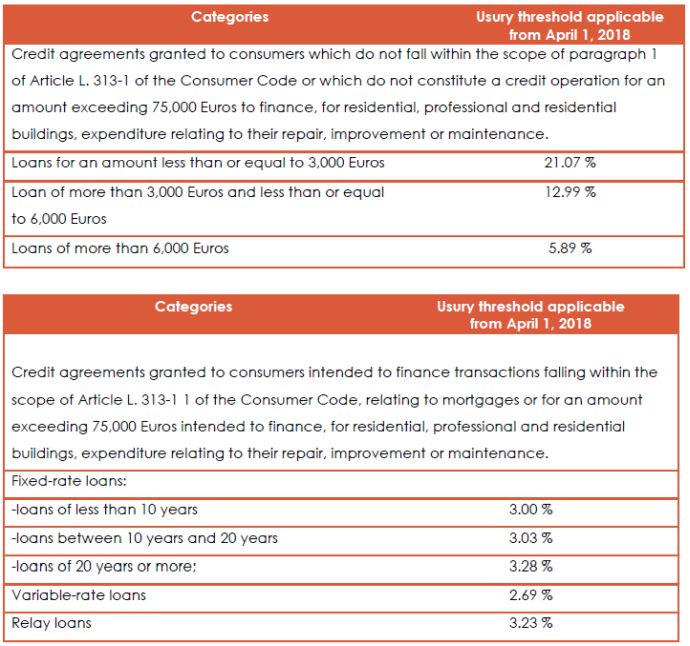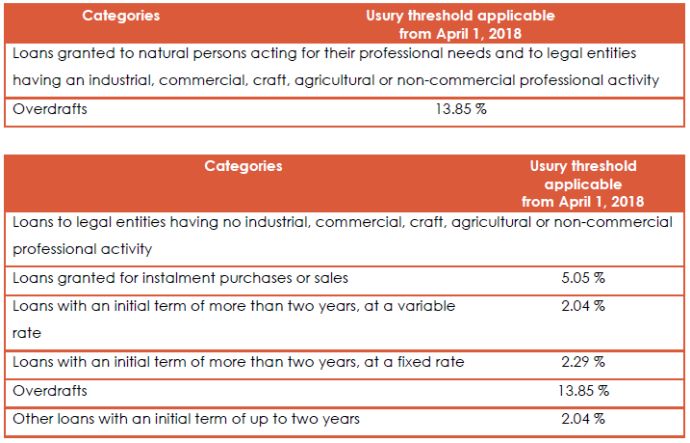Notice on usury
On March 28, 2018, a notice was published in the OJ on the application of Articles L. 314-6 of the Consumer Code and L. 313-5-1 of the Monetary and Financial Code concerning usury.
This notice compares the rates actually charged by credit institutions and finance companies with the usury thresholds applicable as of April 1, 2018.
For memory, the usury rates at April 1, 2018 are as follows:


Proposal for a Regulation of the European Parliament and of the Council on the law applicable to the enforceability of assignments of receivables
On March 12, 2018 the European Commission published a proposal for a Regulation on the law applicable to the enforceability of assignments of receivables.
This proposal concerns the enforceability or the proprietary rights of the assignment of receivables but does not cover the transfer of contracts (such as derivative contracts) containing both rights (or claims) and obligations, or the novation of contracts containing such rights and obligations.
The draft regulation lays down general conflict of law rules which must be rejected if the Union law provides otherwise in particular matters (lex specialis).
The principle is that the law governing the enforceability of assignments of receivables is the law of the country where the assignor has his habitual residence at the time in question. In the case of a syndicated loan, the law of the habitual residence of the assignor governs the enforceability of an assignment by a creditor of his share of the receivable.
The proposal provides that the enforceability of assignments of the following types of receivables would, exceptionally, be governed by the law of the assigned receivable:
- cash credited to an account with a credit institution;
- receivables arising from a financial instrument, such as a derivative contract.
The proposal also provides that the assignor and the assignee may choose as the law applicable to the enforceability of an assignment of receivables for securitization, the law applicable to the assigned receivable. The scope of application of the law designated as applicable would be as follows:
- Requirements to ensure the enforceability of the assignment with respect to third parties other than the debtor (formalities in respect of registration or publication, etc.);
- priority of the rights of the assignee over the rights of another assignee of the same receivable;
- priority of the rights of the assignee in relation to the rights of the creditors of the assignor;
- priority of the rights of the assignee in relation to the rights of the beneficiary of a transfer of contract in respect of the same receivable;
- priority of the rights of the assignee over the rights of the beneficiary of a novation of the debtor's contract for the equivalent receivable.
Exceptions to the application of the law designated in the event of overriding mandatory provisions of the judge seized or whose application is manifestly incompatible with the public policy of the forum. As for the referral mechanism, it is expressly excluded.
The proposal currently provides for an application 18 months after the entry into force.
The European Commission is accepting feedback on this proposal until May 23, 2018.
To view the full article, please click here
The content of this article is intended to provide a general guide to the subject matter. Specialist advice should be sought about your specific circumstances.



